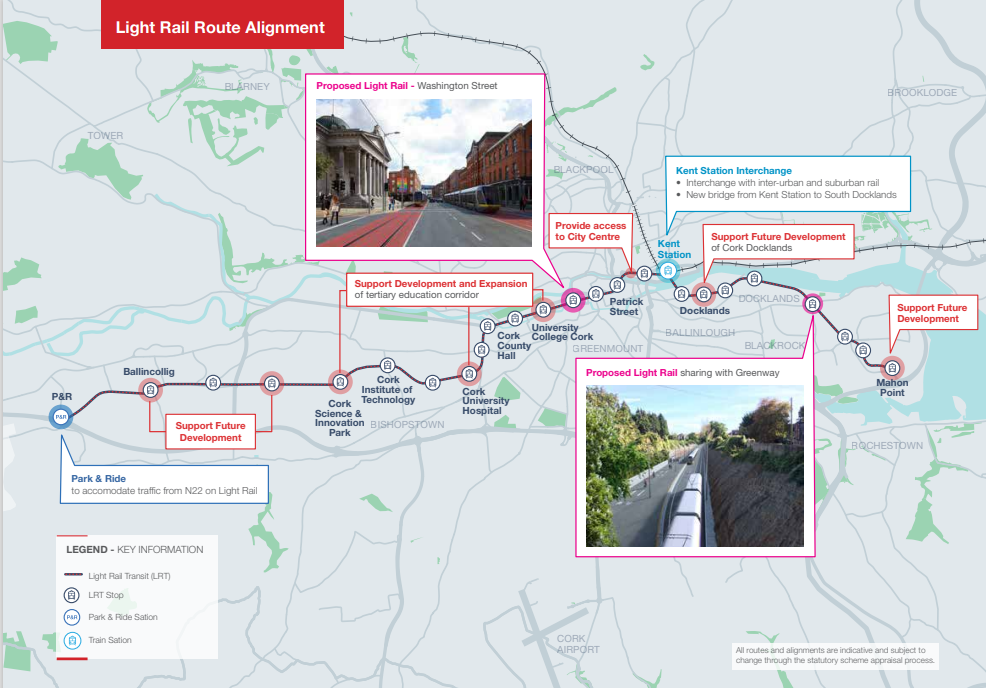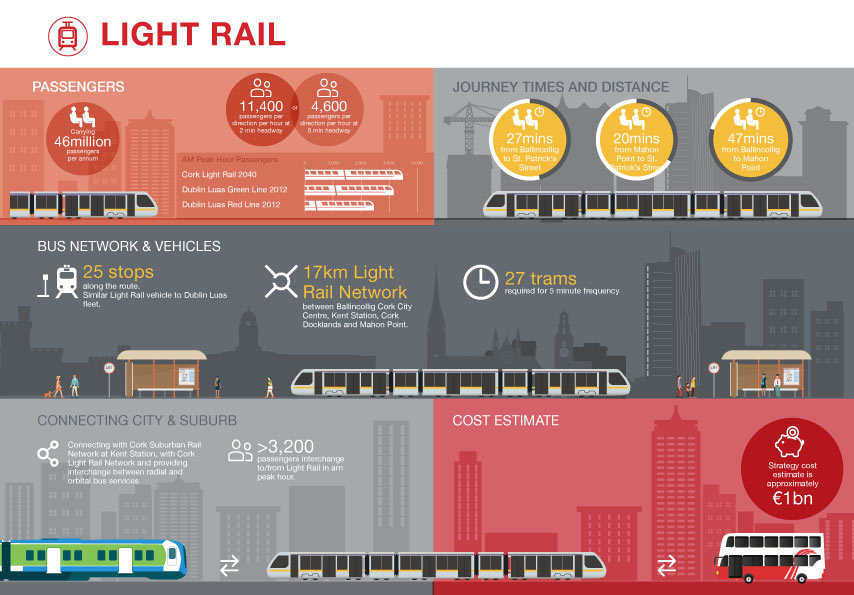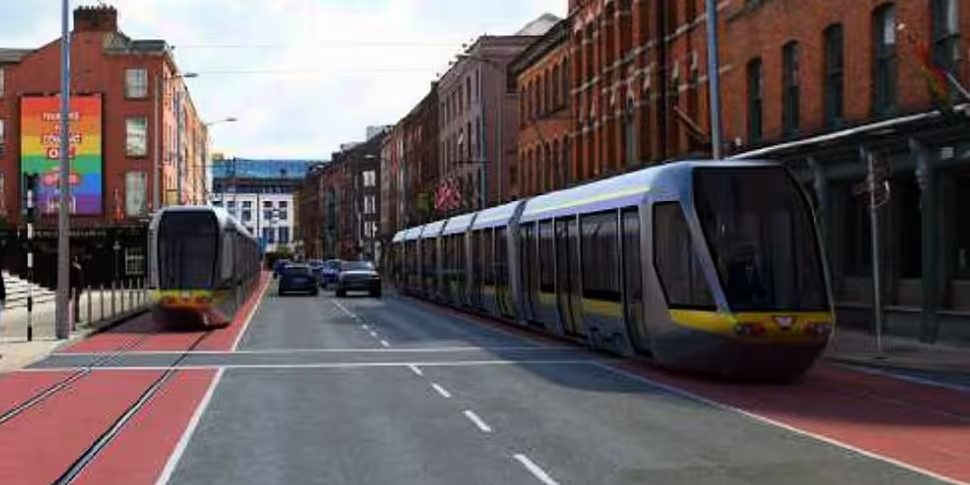A Luas-style light rail system for Cork city is 'more down the road', an economist has said.
Dr Frank Crowley was responding to comments by Taoiseach Leo Varadkar, who said he would like to see a light rail system for the city.
The plans had been discussed as part of an All-Island rail review which was launched last summer.
The planned line would run from Ballincollig to Mahon if it gets the green light.
Mr Varadkar said increased rail services are the priority for the area first.
"I think it's a good idea. Light rail has worked extremely well in Dublin - I'd like to see more of it," he said earlier.
"I don't see why we can't have it in other cities too. The priority certainly in Cork is the Cork Metropolitan Rail.
"You'll know that we're double-tracking to Midleton, and there are proposals for a whole new set of stations around Cork.
"So, I would say the priority is Bus Connects - it's also Cork Metropolitan Rail," he added.
 Light rail proposals for Cork. Source: National Transport Authority
Light rail proposals for Cork. Source: National Transport AuthorityDr Crowley told The Hard Shoulder a light rail system is still going ahead but will have to come later.
"Importantly - and I think in the context of what the Taoiseach was saying today as well - is that a a light rail system is still in the plans but it's more down the road," he said.
"We're talking 2030/2040 period before that is being envisaged within the Cork city region.
"The Cork Metropolitan Area Strategy I suppose sets out an important prioritisation within it.
"Bus Connects is one of the key elements of that, and I do see Bus Connects being pivotally important.
"At the moment three-out-of-four people in the Cork city region do their daily trips by car.
"Only 5% of day trips are taken by public transport, so we've got a serious public transport problem in Cork city.
"The context of all these types of plans is the national framework going back to Ireland 2040.
"In that, Cork was supposed to increase its population by 50% out to 2040.
"Currently... it's highly congested, it's a sprawl city, it's very spread out.
"This is a drag on competitiveness and so public transport is a key strategic area for the Cork city region".
 Light rail proposals for Cork. Source: National Transport Authority
Light rail proposals for Cork. Source: National Transport AuthorityDr Crowley said a shorter-term plan could see a rapid transport corridor with Bus Connects going through the city which "would create the platform and structure for a light rail down the line."
"I'm sold on a light rail situation for Cork city, largely because it's permanent and it's not influenced by the political winds of the day.
"That's important for investors," he added.
Projections by the National Transport Authority (NTA) have suggested a Cork light rail system could carry 46 million passengers a year.









